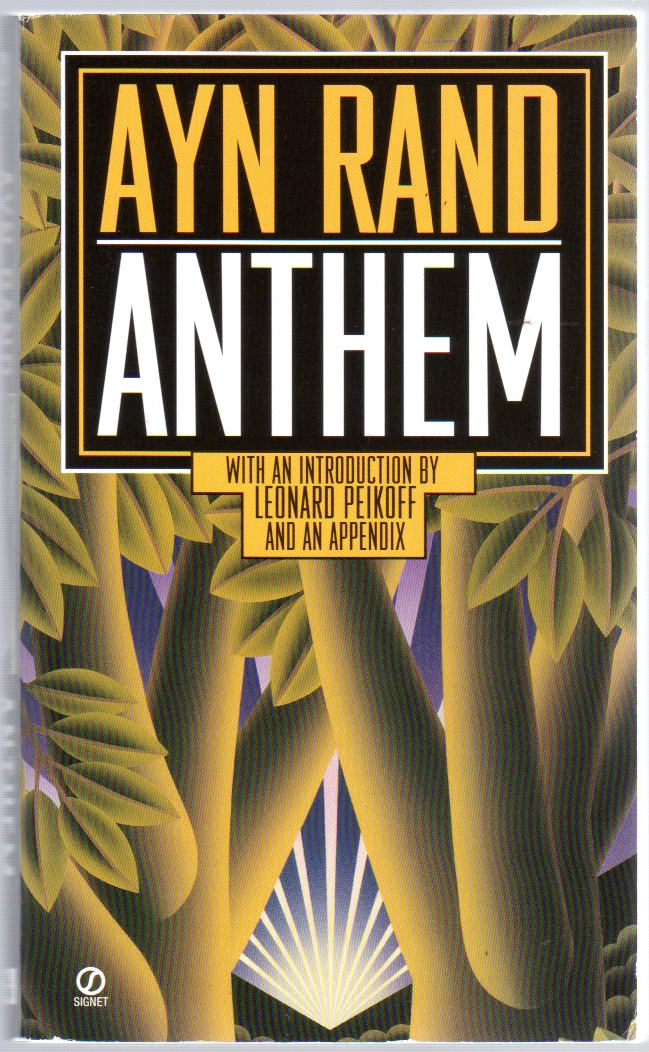
Equality 7-2521 lives in the dark ages of the future where all decisions are made by committee, all people live in collectives, and all traces of individualism have been wiped out. Despite such a restrictive environment, the spark of individual thought and freedom still burns in him–a passion which he has been taught to call sinful. In a purely egalitarian world, Equality 7-2521 dares to stand apart from the herd–to think and choose for himself, to discover electricity, and to love the woman of his choice. Now he has been marked for death for committing the ultimate sin. In a world where the great “we” reign supreme, he has rediscovered the lost and holy word–“I.”
Dear Anthem,
You were interesting. It took me a little bit to get to know you. I’m glad I met you, you connected a political idea with an original story that has stayed relevant even to today.
With Love,
Hannah
This book was… interesting. Quite a short read, maybe an hour with full attention. I was encouraged to read this by a close friend and my mom, to look at the potential harms of communal living. Since these two people recommended the book so highly, I decided to pick it up (and I’m glad I did).
While I did find Equality 7-2521 a new and inventive character, I didn’t find Equality 7-2521 a sympathetic character, which made it a bit harder to read. Instead of reading to enjoy the book, I was more reading for the information or what I could take away from the book. Which is never, in my experience, a great place to start when I am beginning a book. However, it does drive me to complete the book even if I don’t love every aspect. Apart from the characters, I do think the story’s plot was intriguing. The book is a sort of journal of Equality 7-2521, as he looks back at growing up and his escape from the community. Readers are able to see the inner thoughts and outer expectations of the character. I felt like Ayn Rand wrote a natural progression of realization, even though I would say Equality 7-2521 always had a little bit of insight into his world.
This book was uniquely written, however it was difficult to get into for me. I do not know why, but it took me a little bit of time to get used to the narrator using “we” in place of “I”. This was an interesting writing style and I think it supported her topic, I just seemed to struggle with it for some reason.
Despite, or in spite, of my difficulties with the characters and the writing, this is a book I would recommend. Rand did an excellent job in this book analyzing the loss of self or independent identity when there is a negative focus on group. There are a lot of applications I found in my own thinking. Whether you agree or not with the premise, this book excels at encouraging others to think deeper. These are some of my favorite kind of books, because I love bridging the gap between the fictitious world and our own. So, if you’re in the mood for a “thinking/cognitive” book, this is a classic I would encourage you to pick up.
